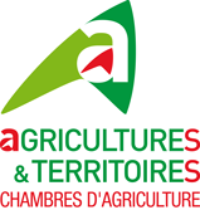Document type : Article published in The Conversation
Author: Marie Sigaud
Preview: The issue of animal welfare has entered public debate, as is evidenced by a law recently passed on its first reading in the National Assembly on 29 January 2021, which proposes the banning of shows that involve wild animals (in travelling circuses or dolphinariums). However, this (much publicised) proposal barely touches on the issue of the captivity of wild animals in France.
It has a practical impact for only a few dozen species, whereas the trade in wild animals (also known as exotics) as pets involves hundreds of thousands of animals each year in France alone and constitutes a market worth several billion euros at a European scale.
Yet the plight of these animals attracts far less attention from the media, the general public and even the authorities. […]
The list of species available for sale, more or less legally, is a very long one. If we look at reptiles, almost a third of existing species, more than 3,000, can be purchased on the Internet, regardless of their protected status or the fragility of their wild populations.
A poorly regulated trade
The list of species available for sale, more or less legally, is a very long one. If we look at reptiles, almost a third of existing species, more than 3,000, can be purchased on the Internet, regardless of their protected status or the fragility of their wild populations.
In France, the Decree of 8 October 2018 sets out the general rules for keeping non-domestic animals. It lists the species that must be declared or require a certificate of capacity. […]
However, the Decree sets no binding rules, and no minimum requirements for the conditions in which the animals should be kept. In addition to its impact on biodiversity, the growth of this flourishing trade raises the increasingly valid issue of the suffering of exotic animals held in captivity.
Ensuring that exotic animals in captivity are kept in good conditions not only requires suitable facilities and a thorough knowledge of the species in question – how it behaves and what its natural habitat is like – but also calls for a significant investment of time.
While zoos can be expected to have suitable facilities and trained staff, private individuals generally have much more limited resources. In the vast majority of cases, they are not able to provide animals with an environment that meets their basic needs. […]
The trade in and keeping of wild animals as pets goes hand in hand with the normalisation of animal suffering and a high mortality rate. Some researchers estimate that up to 75% of reptiles die in their first year in a private home.
This is in addition to the very high mortality rates found at all stages of the distribution chain: from the moment of an animal's capture in the wild, in the course of its transport – which is also true for animals bred in captivity – right through to its arrival at a private home. In the case of reptiles, a mortality rate of almost 70% has been recorded among certain "wholesalers" in the sector.
In 1992, it was estimated that for every 700,000 birds taken from the wild and brought to the United States alive each year, five times as many died in the process. This trade represents a huge waste which not only trivialises the suffering of these animals, but also has serious consequences for biodiversity and poses risks to public health […]
At present in France, a long list of species is subject to a mandatory declaration or certificate of competence. As a result, those species not on this list are not subject to any restrictions. […]
One way forward would be to reverse the current logic by putting in place a positive list that would specify a reduced number of species allowed to be kept by individuals. It would be much easier for the authorities to control trading and for individuals to learn about these species and to have the real resources required to take care of their animals. This solution, which is favoured by many experts and associations, is already being implemented in some countries.




